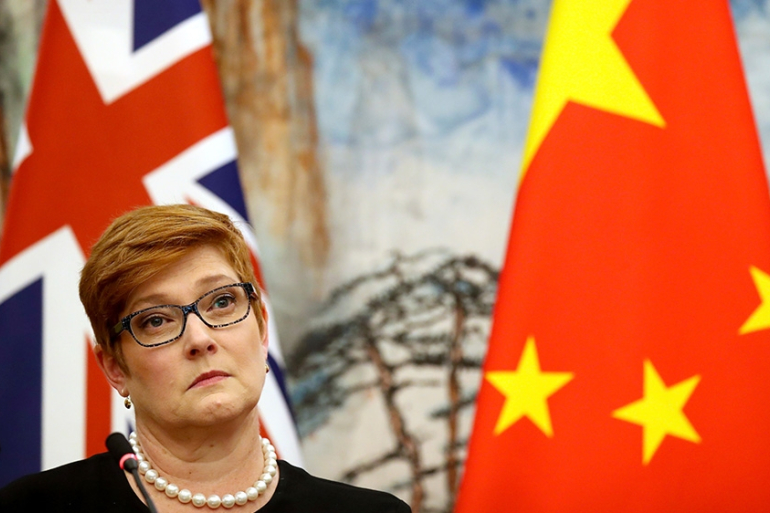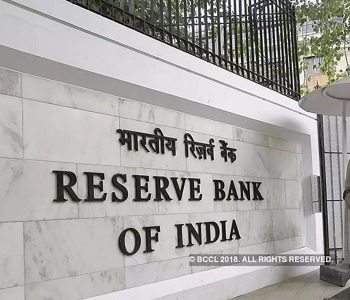Australia withdraws from Chinese ‘Belt and Road’ deal
China says cancellation of Belt and Road deal with Victoria state is a ‘provocative move’.
KATHMANDU: Australia says a decision to cancel two deals between Victoria state and China on the Belt and Road Initiative was about ensuring consistency in foreign relations and was not aimed at any country.
The Chinese embassy earlier criticised the move by Foreign Minister Marise Payne to veto two agreements signed by Victoria state as “provocative” and said it would further damage ties with Australia.
The Australian federal government scrapped the memorandum of understanding and framework agreement signed between Victoria and China’s National Development and Reform Commission, Beijing’s top economic planning body.
Payne said on Thursday that she has received a thousand notifications from Australian states about deals they have with multiple foreign governments, under a new process that gives her veto over such arrangements.
“This scheme is very focussed on Australia’s national interest. It’s about ensuring consistency of our foreign relations across Australia and it’s most certainly not aimed at any one country,” she told ABC radio’s AM programme.
Beijing had been notified of the decision before it was made public on Wednesday evening.
She added that Australia was committed to engaging with China, and was “asking all governments around the world to respect our government’s decision-making authority”.
Australia’s conservative coalition government had declined to agree to a country-level MOU with China on the Belt and Road Initiative. But Victoria Labor Premier Dan Andrews signed an agreement to promote the infrastructure development initiative in 2018 and 2019, saying it would bring Chinese investment to his state.
The Chinese embassy said in a statement the cancellation was “another unreasonable and provocative move taken by the Australian side against China”.
Australia “basically fired the first major shot against China in trade and investment” conflicts, Chen Hong, the director of the Australian Studies Center at East China Normal University in Shanghai, told the Communist Party-backed Global Times. “China will surely respond accordingly.”
Souring ties
Relations between Australia and its largest trading partner have been in free-fall for a year after the government called for an independent probe into the origins of the coronavirus. Beijing has since inflicted a range of trade reprisals, including imposing crippling tariffs on Australian barley and wine while blocking coal shipments.
“What we have to wait for now is how Beijing will react materially” to Payne’s move, Clive Hamilton, a professor at the Charles Sturt University, said in a Bloomberg Television interview on Thursday. “The Belt and Road is Beijing’s strategic tool to advance Beijing’s influence around the world.”
The bans are the first under laws passed by Australia’s national parliament in December that give the foreign minister the ability to stop new and previously signed agreements between overseas governments and Australia’s eight states and territories and also with bodies such as local authorities and universities.
On Wednesday, a senior Chinese embassy official again criticised Australia’s move to effectively ban Chinese telecommunications company Huawei from its 5G network in 2018, the first country to do so, saying Canberra had “even persuaded others to follow suit”.
Payne’s announcement, which included bans on two other deals between Victoria and the governments of Iran and Syria, came the same day a Chinese diplomat indicated that there will be no immediate thaw in ties between Beijing and Canberra.
“We have done nothing intentionally to hurt this relationship and we have seen too many incidents over the past few years in which China’s interest has been hurt,” Wang Xining, the Chinese Embassy’s deputy head of mission, told reporters in Canberra.
Payne is visiting New Zealand, where she will meet her counterpart Nanaia Mahuta. Mahuta on Monday said New Zealand did not support the Five Eyes security alliance – which also includes Australia, Britain, Canada and the United States – speaking out on human rights issues.
The comments were widely interpreted as referring to Five Eyes joint statements criticising China.
“Australia will continue to emphasise the vital nature of the Five Eyes in security and intelligence,” Payne said on Thursday. Al Jazeera













Facebook Comment